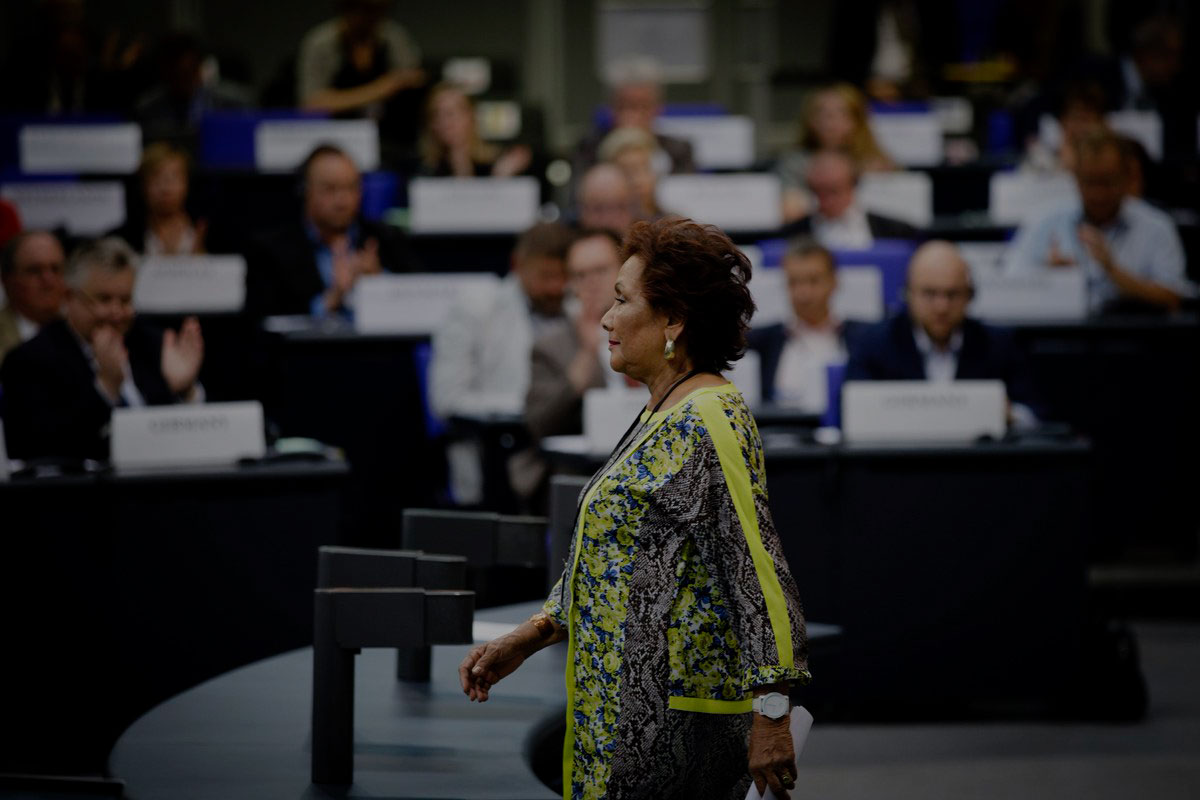
OSCE parliamentarians celebrate women in leadership on International Women’s Day
Marking the 110th International Women’s Day, OSCE Parliamentary Assembly leaders today celebrated the efforts of women and girls around the world in building a future that ensures equal rights for all. The parliamentarians noted that women play an essential role in in peace building and conflict prevention in the OSCE area, and have been instrumental in promoting recovery from the COVID-19 pandemic. To realize true peace and prosperity, societies must continue to work toward full equality between the genders, they said.
“Throughout the OSCE area, women have been at the forefront of the fight against the COVID-19 pandemic,” said OSCE PA President Peter Lord Bowness. “This has not only further underlined the disproportionate burden that women carry in our societies, but it has also highlighted how female leadership can make a real difference. As we progress towards recovery, it is therefore essential that we continue to empower women for the greater benefit of our communities.”
Several OSCE PA women leaders issued video statements to mark the occasion, including Special Representative on Gender Issues Hedy Fry (Canada), Vice-President and Rapporteur of the human rights committee Kari Henriksen (Norway), economic and environmental committee Rapporteur Elona Gjebrea Hoxha, and Special Representative on Eastern Europe Daniela De Ridder. (The videos are available on the OSCE PA’s YouTube and Twitter pages.)
“On International Women’s Day, let’s celebrate women leaders in peace building and conflict prevention efforts in the OSCE region and beyond,” said Special Representative Fry. “With women’s participation, peace efforts are more successful, yet women accounted for only 3 per cent of mediators, 4 per cent of signatories, and 13 per cent of negotiators from 1992 to 2018. Women should be equal participants, and all women – of different ages, ethnicities, and citizenship status – should be included.”
In an address to the OSCE PA’s 20th Winter Meeting on 25 February, Fry applauded the fact that the OSCE has moved closer to gender equality with many of its leadership roles now filled by women. Helga Schmid, she noted, is the OSCE’s new Secretary General, and the first woman to hold this post. In addition, Teresa Ribeiro is the new Representative on Freedom of the Media, and Ann Linde, Sweden’s Foreign Minister, is the new OSCE Chairperson-in-Office.
The theme for International Women’s Day 2021 is “Women in leadership: Achieving an equal future in a COVID-19 world.”
On International Women’s Day, OSCE leaders call for strengthening women’s leadership to achieve peace and security for all
The role of women as leaders, particularly in peace building and conflict prevention, is essential to achieve prosperous and peaceful societies, and to guarantee the strength of our democracies, say OSCE officials on the occasion of International Women’s Day.
OSCE leaders from the Chairpersonship, the Secretariat, the Office for Democratic Institutions and Human Rights and the Parliamentary Assembly highlighted the need for increased efforts and resources to advance women’s leadership. They also stressed the critical role of women’s empowerment to ensure that post-COVID-19 recovery efforts are inclusive and provide an opportunity to increase women’s participation in decision-making in public life.
“The economic empowerment of women and girls is essential for their meaningful involvement and equal participation in decision-making processes, including in conflict resolution and peace building. Promoting women’s leadership is an important aspect when we aim to increase women’s and girls’ full and effective participation in decision-making processes. The OSCE has an important role to play in its efforts to strengthen women’s leadership in our societies,” said the OSCE Chairperson-in-Office, Swedish Minister for Foreign Affairs Ann Linde.
“As our societies deal with the COVID-19 pandemic, implementing the OSCE’s strong commitment to women’s equal participation is more important than ever. We need to prioritize our efforts to promote women’s leadership, through professional training and mentoring, through supporting women’s peacebuilding networks and through ensuring a gender-sensitive work environment,” said Secretary General Helga Maria Schmid.
The officials stressed that gender equality is a prerequisite for inclusive peace, sustainable economic development and democratic governance.
Within the OSCE, women are taking the lead. In the Secretariat, institutions and field operations, women working across all three dimensions of security are making leading contributions to the OSCE’s work for peace and security through conflict prevention, conflict management, and conflict resolution.
“The OSCE today is based on the principle of gender equality and this has not only shown that women make strong and capable leaders, but that they make our institutions better: more inclusive, effective, and efficent,” said ODIHR Director Matteo Mecacci. “But we have a long way to go. Men in leadership positions have an important role to play in levelling up the playing field and in defeating age-old prejudices, not just for the good of women but for the success of our societies.”
OSCE Parliamentary Assembly Special Representative on Gender Issues Hedy Fry said: “On International Women’s Day, let’s celebrate women leaders in peace building and conflict prevention efforts in the OSCE region and beyond. With women’s participation, peace efforts are more successful, yet women accounted for only 3 per cent of mediators, 4 per cent of signatories, and 13 per cent of negotiators from 1992 to 2018. Women should be equal participants, and all women – of different ages, ethnicities, and citizenship status – should be included.”
For PDF attachments or links to sources of further information, please visit: https://www.osce.org/chairmanship/480571



